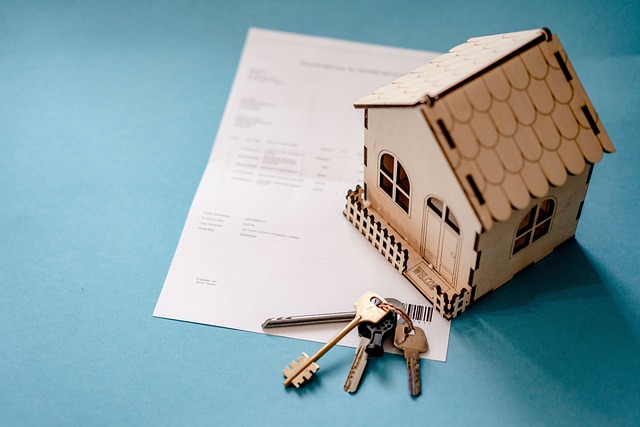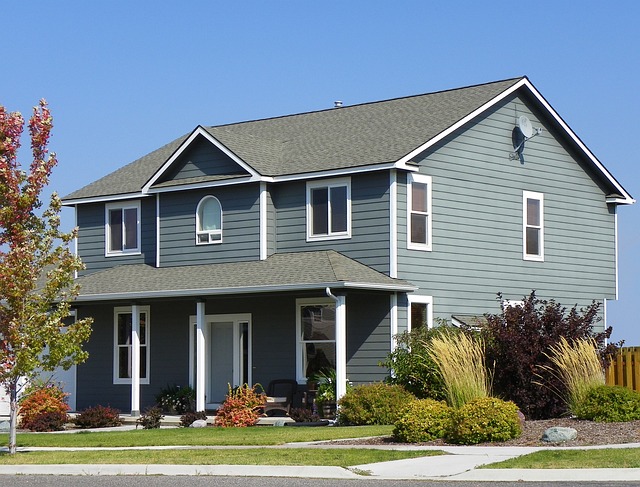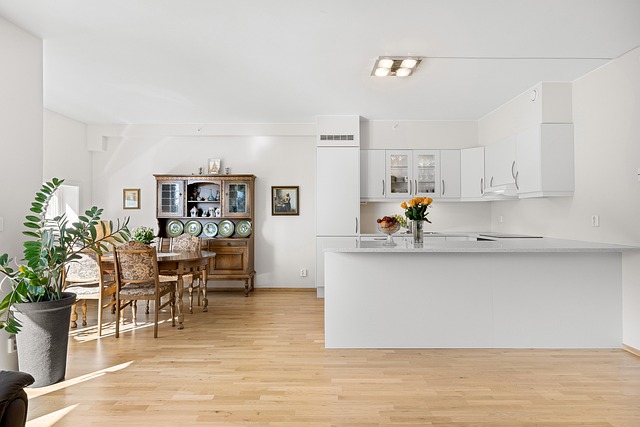Singapore's Executive Condominiums (ECs) serve as a midway housing option between public and private residences, offering condominium-like amenities at more affordable prices, especially for couples and families. Upon fulfilling the five-year Minimum Occupation Period (MOP), ECs become freehold properties and can be resold on the open market. The "Executive Condo After 5 Years" phase is a strategic period where owners can capitalize on their investment by maintaining, upgrading, or even renovating their units to keep pace with market trends and enhance desirability for potential buyers or upgrades to private condominiums. Owners should consider the location, developers' reputations, and unique property features when purchasing post-MOP, as these factors significantly influence the EC's long-term value and your lifestyle. Additionally, financial planning for mortgage repayments and other costs is essential, along with exploring various financing options to align with both investment goals and personal needs. The CPF Housing Grant (HG) for ECs can provide financial assistance post-occupation, provided applicants meet the eligibility criteria. Prospective buyers should utilize online tools like the CPF Board's calculator to estimate grant amounts. A well-maintained and strategically located EC post-MOP can be a lucrative investment, potentially appreciating over time and offering a comfortable living environment that meets evolving family needs.
Navigating the housing market in Singapore can be a complex endeavor, especially for those considering an Executive Condo (EC) as their home. Post-5MOP (Minimum Occupation Period), owning an EC presents unique opportunities and challenges. This comprehensive guide delves into the intricacies of qualifying for an EC, tailored for individuals post-5-year MOP. From understanding what an EC is to financial planning, this article covers everything from eligibility criteria to maintaining your home in peak condition after the MOP. Whether you’re a current EC owner or aspire to be one, this guide will equip you with the knowledge to make informed decisions about your Executive Condo After 5 Years.
- Understanding Executive Condos (ECs) in Singapore: A Comprehensive Guide
- Eligibility Criteria for Applying for an EC: Who Can Apply?
- The 5-Year MOP: What It Means for Your Executive Condo
- Navigating the CPF Housing Grant for Executive Condos
- Financial Considerations: Budgeting for Your EC After the 5-Year MOP
- Choosing the Right Location and Development: Post-MOP Execution
- Post-MOP Upgrading and Maintenance of Your EC: Keeping Your Home in Prime Condition
Understanding Executive Condos (ECs) in Singapore: A Comprehensive Guide

In Singapore, Executive Condominiums (ECs) offer a unique housing option for both couples and families looking for a step up from public housing while not fully venturing into private property. These hybrid homes come with facilities similar to those in condominums but are sold at subsidized prices. Over the years, ECs have become increasingly popular due to their affordability and the potential they hold after five years. Upon fulfilling the minimum occupation period of 5 years, the status of an EC changes from a public to a private asset, enhancing its market value and providing residents with more options should they decide to sell. Prospective homeowners interested in obtaining an EC must meet certain criteria set by the Housing & Development Board (HDB). These include income ceilings and existing housing type restrictions. Additionally, applicants must be at least 21 years old, and one of the applicants must be a Singapore citizen. Understanding these conditions is crucial for eligibility, as they are subject to change and are strictly enforced by the CPF (Central Provident Fund) and HDB regulations.
The journey towards owning an Executive Condo in Singapore begins with a thorough understanding of the eligibility requirements, which are regularly updated to align with national housing policies. Post the completion of the mandatory occupation period, these homes can be sold on the open market, often fetching higher prices due to their transformed status. This transition also means that the EC becomes eligible for en-bloc sales, providing residents with the opportunity to unlock capital if the collective sale momentum is strong within the estate. Prospective buyers should also consider the future potential of the area where the EC is located, as factors such as proximity to amenities, upcoming infrastructure developments, and other real estate trends can significantly influence the property’s value after the five-year mark.
Eligibility Criteria for Applying for an EC: Who Can Apply?

Singaporeans and permanent residents interested in applying for an Executive Condominium (EC) must consider their eligibility under the guidelines set by the Housing & Development Board (HDB). To qualify for an EC, applicants should first ensure they have not owned a flat before. However, after five years of living in the EC or selling it back to the government, individuals and families are eligible to apply for a new EC. This five-year rule is crucial as it allows Singaporeans and permanent residents who previously could not afford a public housing flat to step up to an EC. Couples looking to apply must also meet the income ceiling set by the HDB, which is subject to changes and should be verified at the time of application. Additionally, applicants must intend to use the EC as their primary residence for the initial occupation period, after which they may consider renting it out or selling it on the open market. This makes the Executive Condo After 5 Years an attractive housing option for those looking to progress from public to private housing within the government’s structured framework.
The 5-Year MOP: What It Means for Your Executive Condo

When considering an Executive Condo (EC) as your next home in Singapore, understanding the Minimum Occupation Period (MOP) is crucial for long-term planning. Upon acquiring an EC, you are looking at a 5-year MOP before you can sell the unit on the open market. This period allows first-time flat owners to live in their ECs, fostering stability within the community. Post the 5-Year MOP, also known as the Executive Condo After 5 Years eligibility phase, owners gain greater flexibility with their property. This means that if you’ve fulfilled the MOP and your family nucleus still qualifies for an EC, you can either continue to reside in it or consider selling it to upscale to a larger or more luxurious home without the additional buyer’s stamp duty (ABSD) that applies to subsequent property purchases. Additionally, if you decide to retain your EC after the MOP, you can leverage its potential for capital appreciation over time. Understanding this cycle of eligibility and occupancy is key for anyone looking to invest in an EC as part of their housing journey in Singapore.
Navigating the CPF Housing Grant for Executive Condos

When considering the purchase of an Executive Condominium (EC) in Singapore, understanding the CPF Housing Grant (HG) for ECs is crucial. The grant, designed to assist eligible applicants with their housing needs, can significantly reduce the financial burden associated with EC ownership. To qualify for the CPF Housing Grant for ECs after 5 years of living in the unit, certain conditions must be met. Firstly, applicants must not own a flat or any other residential property when they apply for the grant, and if they do, they must dispose of it within the stipulated time frame. Secondly, the monthly household income should not exceed the ceiling set by the Housing & Development Board (HDB). The grant amount varies based on the type of EC unit purchased and the size of the household. For instance, a couple without children who purchases a three-room EC may receive a different amount compared to a family with two children purchasing a four-room unit. It’s advisable for prospective buyers to use the CPF Housing Grant Eligibility Calculator provided by the CPF Board to estimate their potential grant amount before making a commitment. This tool takes into account the specifics of the EC and the applicant’s financial situation, ensuring that they have an accurate understanding of the support available to them through the CPF Housing Grant for Executive Condos after 5 years.
Financial Considerations: Budgeting for Your EC After the 5-Year MOP

When considering the acquisition of an Executive Condo (EC) after its five-year Minimum Occupation Period (MOP), financial planning is paramount. Post-MOP, ECs become eligible for buyers outside of the public housing scheme, which can increase their appeal and potentially their market value. Prospective buyers should assess their financial situation with a forward-looking perspective, taking into account not only the down payment but also the ongoing costs associated with owning an EC. These costs encompass mortgage payments, maintenance fees, and additional expenses such as renovation or furnishing the property. It’s crucial to have a clear budget that accounts for all these factors, ensuring that the EC fits comfortably within your long-term financial plan.
Moreover, after the MOP, the value of an EC can appreciate over time, making it a potentially lucrative investment. However, this appreciation is not guaranteed and should be considered as one of several potential outcomes. Prudent buyers will consider various market scenarios and their implications on the property’s value. They should also explore different financing options available for ECs, which may include bank loans or HDB loans, each with its own set of terms and conditions. By carefully planning and budgeting, buyers can navigate the financial landscape post-MOP with confidence, securing an Executive Condo that aligns with their investment goals and lifestyle preferences.
Choosing the Right Location and Development: Post-MOP Execution

When considering an Executive Condo (EC) after the Minimum Occupation Period (MOP) has lapsed, the importance of selecting both the right location and development cannot be overstated. Post-MOP, ECs become freehold properties, offering homeowners a permanent asset. Proximity to amenities such as shopping centers, schools, and public transportation is paramount for convenience and resale value. Additionally, opting for an EC in mature estates like Sengkang, Tampines, or Punggol provides residents with well-established communities and a range of facilities.
The development itself should align with your lifestyle preferences and long-term plans. For instance, an EC that is part of a larger integrated transport hub can offer seamless connectivity, while one in a tranquil setting might provide a more serene living environment. It’s also wise to consider the track record of the developers, as well as the unique features each development offers, such as smart home technology or exclusive facilities. By carefully evaluating both location and development, you can ensure that your Executive Condo after 5 years meets your needs for comfort, accessibility, and investment potential.
Post-MOP Upgrading and Maintenance of Your EC: Keeping Your Home in Prime Condition

When the Minimum Occupation Period (MOP) for your Executive Condo (EC) expires after five years, a range of opportunities opens up for you. This pivotal post-MOP phase is not just about upgrading your home; it’s also a time to ensure that your EC remains in top condition. As an EC owner, it’s crucial to maintain the property to preserve its value and appeal. Regular maintenance checks and timely repairs are essential to address any issues before they escalate. This proactive approach to upkeep is key to keeping your EC in prime condition, ensuring that it not only retains its marketability but also provides a comfortable living environment for you and your family.
Upon reaching the end of the MOP, Executive Condo After 5 Years homeowners have the option to sell their unit in the open market or upgrade to a private condominium under specific schemes. This transition often involves assessing the property’s condition and making necessary enhancements. For instance, renovations that align with the latest trends and enhance the property’s features can significantly boost its resale value. Additionally, staying informed about the housing market and government policies will guide your decisions during this period of change. By carefully planning maintenance and potential upgrades, you can ensure your EC continues to meet your needs while maintaining or increasing its worth in the dynamic real estate landscape.
